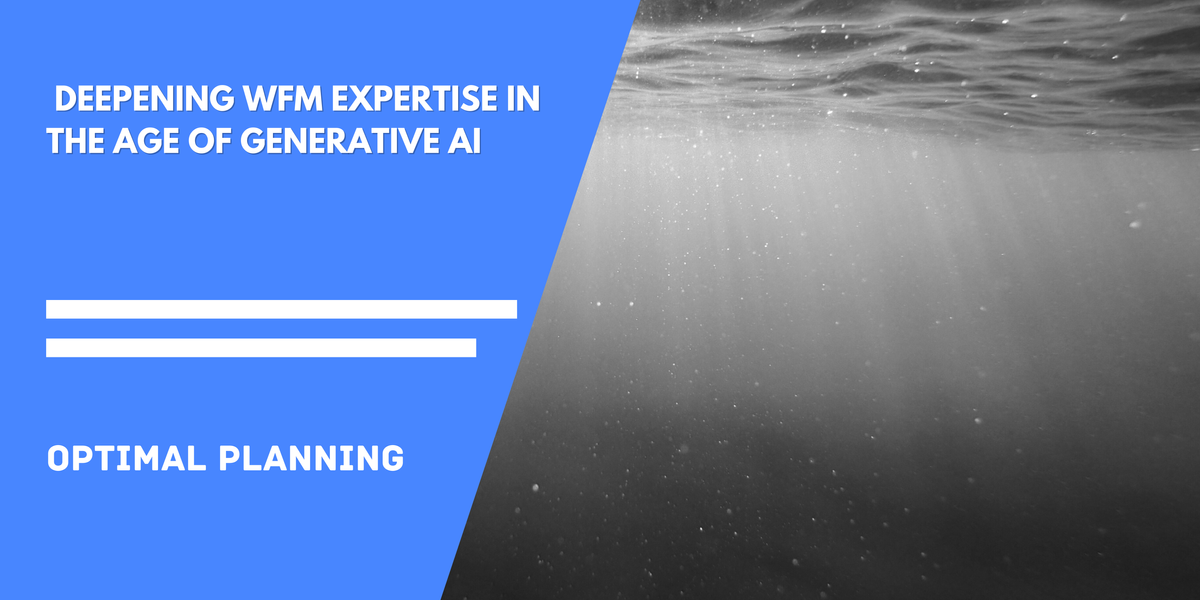Deepening WFM Expertise in the Age of Generative AI

Last week, I discussed how generative AI in Workforce Management (WFM) can help create additional time for exploring adjacent functions, promoting an integrative thinking approach that surpasses current AI capabilities. This week, I aim to explore increasing one's depth of knowledge within their specific WFM function.
Depth
WFM analysts typically undergo a learning curve in functions such as real-time adherence, scheduling, capacity planning, and forecasting. Initially, analysts might struggle, but over time, as they resolve issues, they become more proficient. However, many plateau once the established processes and systems seem adequate for addressing immediate problems, resulting in a mid-level depth of understanding rather than a deep, comprehensive knowledge.
Utilizing generative AI, analysts can pose in-depth questions to enhance their understanding of their specific function. Here are examples of queries I've explored to deepen my knowledge across various WFM functions:
Real Time Adherence: Investigating the automation of script running on a scheduled timer via API calls in Zendesk.
Scheduling: Exploring how to integrate WFM data with HR software like Workday, and identifying WFM software that supports unorthodox full-time shifts.
Forecasting: Using machine learning tools to forecast contact center volume with volatile seasonality.
Capacity Planning: Identifying key financial metrics related to capacity planning in a contact center and understanding their definitions.
The initial responses from generative AI might sometimes seem insufficient or shallow, but the beauty of these tools lies in their ability to elaborate on specific areas. You can continue to probe deeper into topics, which helps prevent the stagnation of learning. One major fallacy that WFM professionals might fall into during the age of generative AI is the belief that they have fully mastered their function and that there is no room for improvement.
Generative AI is not just a tool for automation but also a means to continually challenge and expand our knowledge and capabilities within the WFM domain. It prompts us to question our current understanding and push beyond the complacency that comes with familiarity. By continually seeking deeper insights and understanding, WFM professionals can ensure that their skills and knowledge evolve as rapidly as the technologies that support their industries.